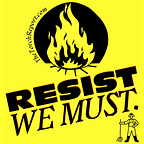Are we slaves?
“If a slave can be convinced that he should be a slave, that his enslavement is both proper and legitimate, that he is the rightful property of his master and that he has an obligation to produce as much as possible for his master, then he does not need to be physically oppressed. In other words, enslaving the mind makes enslaving the body unnecessary. And that is exactly what the belief in “authority” does: it teaches people that it is morally virtuous that they surrender their time, effort and property, as well as their freedom and control over their own lives, to a ruling class.”
Those prescient words were penned by Larken Rose in his 2011 masterpiece The Most Dangerous Superstition. Throughout the book, Rose forcefully presses the point that “authority” is little more than the assumption that one person or group has the right to forcibly control another person or group.
This supposed right to impose one’s will, or even the will of the majority, upon any person who stands opposed does not exist in nature. Attempt to control a wild animal and you will quickly see what I mean. Even domesticated animals have a mind of their own, as every pet owner knows. This is a pristine example of self-sovereignty.
Individuals each have their own will. With that individual will comes the inherent ability to exercise the power of choice. This is an inextinguishable aspect of our humanity. Making our own choices, from what shoes to wear, what we eat, where we go and what we do, and especially what we think, is a natural expression of self-sovereignty. It is an interminable extension of being alive.













